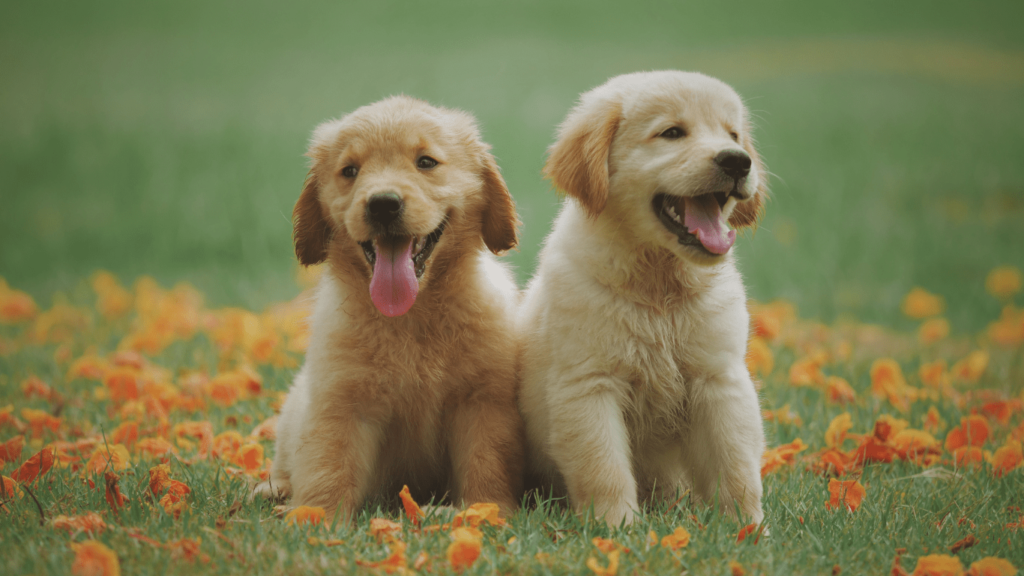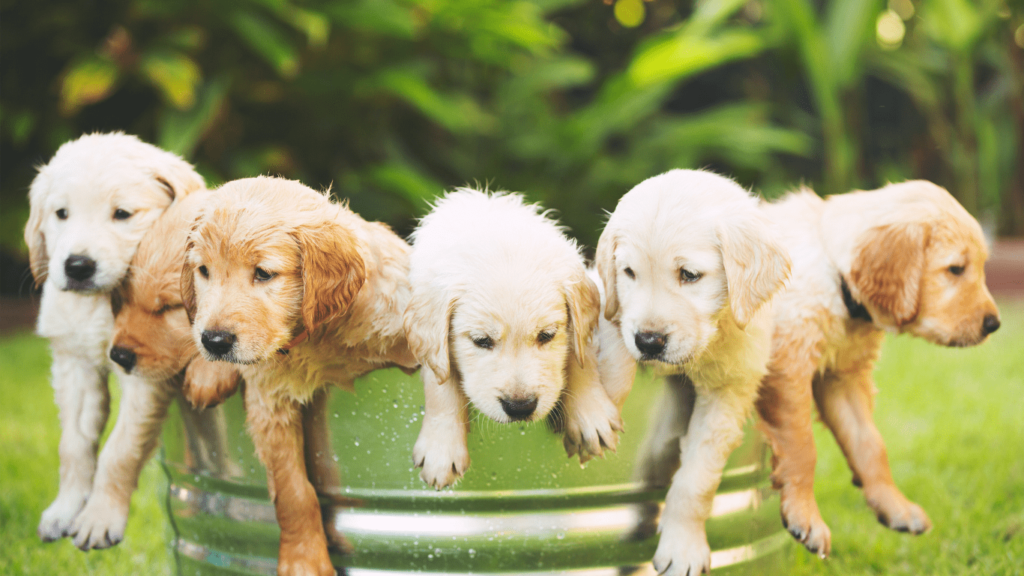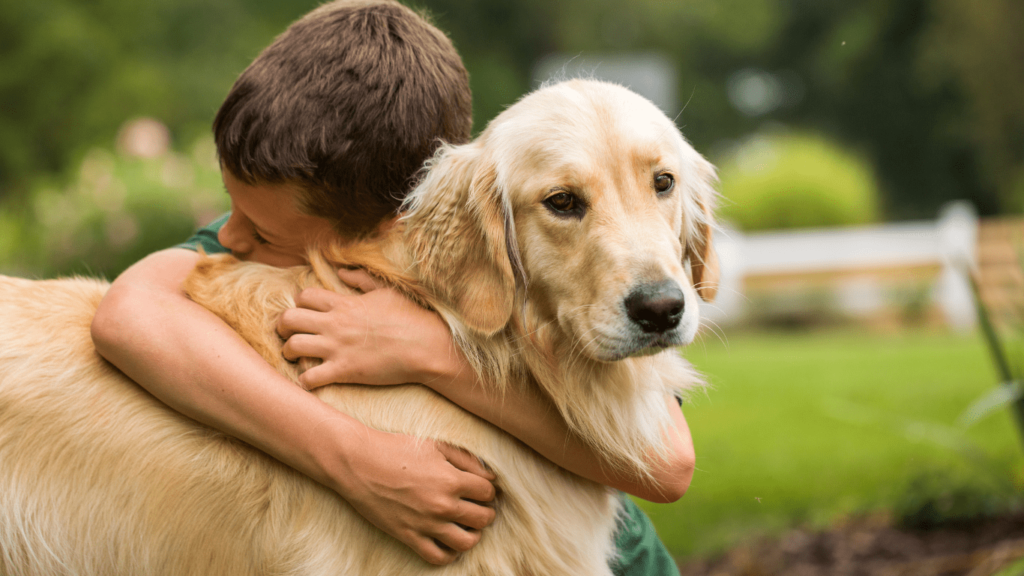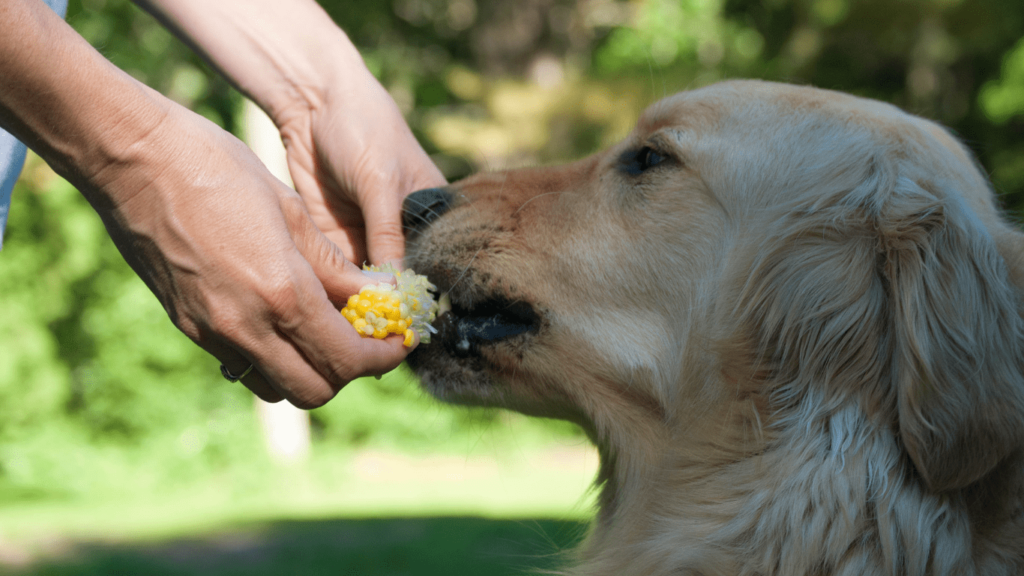One of America’s most beloved dog breeds, the Golden Retriever is celebrated for its generous spirit and beautiful appearance. These dogs excel in a variety of roles, from hunting and working in the fields to assisting the blind and participating in search and rescue missions. Their distinctive features include a broad head, intelligent eyes, and a graceful, powerful gait.
Originating from the Guisachan Estate in Scotland, the breed’s development has been well documented since the 19th century. Golden Retrievers have a thick golden coat and maintain a friendly, playful nature into adulthood. Perfect for families, they are outgoing, dependable, and enjoy outdoor activities, especially swimming and ball-catching, bringing joy and energy to their human companions.
Breed Overview

Height
22 – 24 inches
Weight
55 – 75 pounds
Lifespan
10 – 12 years
Color
Dark Gold, Golden, Light Gold
Suitable for
Active families, service, therapy, and hunting roles
Temperament
Loyal, attentive, affectionate, energetic
Golden Retrievers are known for their friendly and tolerant demeanor. They are enthusiastic, trustworthy, and intelligent, making them ideal family pets.
Health Status
Golden Retrievers are generally healthy dogs. Responsible breeders will screen for common health problems such as elbow and hip dysplasia, and testing helps manage these conditions. Eye conditions such as childhood cataracts, uveitis pigmentosa, and progressive retinal atrophy are a concern.
Regular eye exams are essential for early detection. Heart conditions such as subvalvular aortic stenosis can also affect this breed. Regular ear checks and dental care are important for their overall health.
Minor Conditions
• Allergies
• Von Willebrand’s Disease
• Cardiomyopathy
• Entropion
• Trichiasis
Serious Conditions
• Cataracts
• Elbow Dysplasia
• Hip Dysplasia
Golden Retriever Puppies

Golden Retriever puppies are known for their friendly, affectionate nature and playful energy. With their striking golden coats and expressive eyes, they quickly become beloved family members. These puppies are intelligent and eager to please, making them relatively easy to train. Their sociable temperament means they get along well with children and other pets, adding to their appeal as family companions.
As they grow older, Golden Retriever puppies need regular exercise and mental stimulation to thrive. Daily walks, playtime, and training sessions help to infuse them with positive energy. Early socialization is important, as it helps them develop into well-rounded adult dogs. Overall, their loving temperament and playful spirit make them a favorite among dog lovers.
Temperament and Intelligence of the Golden Retriever
Golden Retrievers are highly intelligent and eager to please, making them easy to train and extremely loyal to their owners. Their ability to understand human emotions and body language makes them excellent therapy dogs, assisting those with disabilities or anxiety disorders.
As energetic puppies, Golden Retrievers require patience, but their intelligence shines as they mature. They excel in roles such as companionship, service, and hunting, thriving in water and on land with their versatility and learning ability.
Are these dogs good for families?

Golden Retrievers are recommended as family dogs. They are known to be extremely friendly with children and are often protective of young children. They also exhibit a calm demeanor, making them suitable companions for older adults. Adopting a trained adult dog may be a better choice for a senior considering a Golden Retriever than dealing with the energetic puppy stage.
Their affectionate nature makes them ideal for family outings. Golden Retrievers are enthusiastic participants in activities such as company barbecues, festivals, and hiking trips. Their friendly and sociable demeanor allows them to adapt to a variety of environments and situations.
Does this breed get along with other pets?
Golden Retrievers are great for multi-pet households because of their friendly nature. They bond quickly with other pets, making them great companions. Their gentle nature often overrides their moderate hunting instincts, but smaller animals should be supervised to avoid accidents.
These dogs adapt easily to new environments and love to socialize, making trips to the dog park fun. Early socialization helps to increase compatibility their role as a versatile and friendly family member in multi-pet homes.
Food and Dietary Requirements

Golden Retrievers need a high-quality dry food diet with carefully controlled portions to avoid weight gain. Consult your veterinarian for raw or home-cooked diets to ensure nutritional needs are met. These diets offer benefits, such as complete nutrition and natural ingredients, but careful preparation and dental health must also be considered. A balanced diet is important to keep Golden Retrievers healthy and active.
Exercise
Golden Retrievers need plenty of exercise to maintain physical and mental health. They enjoy playing fetch and exploring new environments on walks, requiring at least 45 to 60 minutes of activity each day. This can be divided into morning and evening routines.
In addition to walking, these dogs enjoy running, making them great companions for avid runners. Keeping them engaged in a variety of stimulating activities is important for their health. Regular exercise helps prevent obesity and keeps their minds active.
Training
Golden Retrievers are intelligent and eager to please, making them great for training. They learn commands quickly and thrive on positive reinforcement such as treats, praise, and play. Socialization is essential during puppyhood, exposing them to a variety of environments and creatures and ensuring they grow into well-adjusted adults. They excel in service and therapy roles, assisting those with disabilities and providing comfort as therapy animals.
Short daily training sessions of 10-15 minutes keep them focused without overwhelming them. Activities that tap into their natural hunting and searching instincts are also beneficial to training. Obedience classes provide structured learning and socialization opportunities. Starting training early, along with consistent and persistent efforts, is important. This approach, which takes advantage of their adaptability, prepares them well for advanced training.
Grooming
Golden Retrievers need regular brushing due to their long hair. Daily brushing with a soft brush helps maintain the condition of their coat, while a de-shedding tool removes debris from the undercoat every few weeks. Bathing every 4-6 weeks and cleaning their ears afterwards will prevent infection; nail trimming is also essential.
Daily brushing is essential to maintain dental health and prevent periodontal disease. Excessive drooling requires a consultation with your veterinarian to ensure their overall health.
Male vs. Female
Male Golden Retrievers typically weigh 65-75 pounds, while females weigh around 55 pounds. Males have a thicker body with a square head, while females are slimmer with a narrower face. Males may take longer to train, but they are considered better playmates. Females tend to exhibit nurturing behavior and can instinctively feed off their humans.
Fact #1: Golden Retrievers Are Top Therapy Dogs
Golden Retrievers are excellent therapy dogs due to their empathetic nature. They can sense and respond to human emotions, making them great companions for people who need comfort. Goldens are known for their gentle and patient temperament, allowing them to bring a sense of calm to a variety of settings, from hospitals to schools.
Their friendly demeanor helps them connect with people of all ages. Whether it is a child struggling with anxiety or an elderly person feeling lonely, Goldens provide companionship and warmth. Their key traits include empathy, patience, and friendliness. Through their unconditional love and loyalty, Golden Retrievers shine as therapy dogs, with their presence significantly lifting the spirits of those around them.
Fact #2: They are known for their soft mouths when carrying objects
Golden Retrievers are known for their ability to hold their mouths gently, allowing them to carry objects without causing damage. Thanks to their soft mouths, they can pick up prey while hunting without harming it. They can even hold a raw egg in their mouths without breaking it, demonstrating their incredible control and gentleness.
This ability makes them great not only for hunting but also for many tasks that require delicacy. Their soft mouths are the result of selective breeding, enhancing their skills as reliable retrievers. This unique trait is one of many What makes the Golden Retriever unique and contributes to its popularity and usefulness in a variety of roles.
Fact #3: The Golden Retriever’s history dates back to Scotland
The origins of the Golden Retriever can be traced back to the Scottish Highlands in the 19th century, thanks to Lord Tweedmouth of Inverness. In 1864, Lord Tweedmouth purchased and bred a golden retriever named Nous with Belle, a Tweed Water Dog, to establish the foundation of the breed. The cross was aimed at creating a skilled hunting dog with a keen sense of smell and the ability to gently retrieve prey, qualities that define the Golden Retriever today.
The breed’s friendly and adaptable nature stems from early selective breeding efforts, making them ideal companions for families and outdoor enthusiasts. Lord Tweedmouth’s detailed profile sheds light on the breed’s development, dispelling myths about their origins as Russian circus dogs. Prized for their loyalty, intelligence, and versatility, Golden Retrievers proudly carry on their Scottish heritage and continue to be popular around the world.
Frequently Asked Questions
What is the average weight of a Golden Retriever?
Adult Golden Retrievers typically weigh between 55 and 75 pounds. Females are typically smaller, between 55 and 65 pounds, while males tend to weigh between 65 and 75 pounds.
What personality traits are common in Golden Retrievers?
Golden Retrievers are typically affectionate, intelligent, and eager to please. They are known to be friendly and great with children, making them great family pets.
How long do Golden Retrievers typically live?
Golden Retrievers typically have a lifespan of 10 to 12 years. With proper care, some can live even longer.
What is the standard size of a Golden Retriever?
Adult males typically stand 23 to 24 inches tall at the shoulder. Females are slightly shorter, standing 21.5 to 22.5 inches tall.
What colors do Golden Retrievers come in?
The Golden Retriever’s coat can range from light to dark golden. They typically come in three main tones: light, golden, and dark.
How often should a Golden Retriever be brushed?
Golden Retrievers need regular brushing to maintain their coat. You should brush them at least once a week to avoid tangles and reduce shedding. You should also bathe them and trim their nails regularly.
READ NEXT: 100+ Goldendoodle Names: Discover the Perfect Name for Your Adorable Pup
